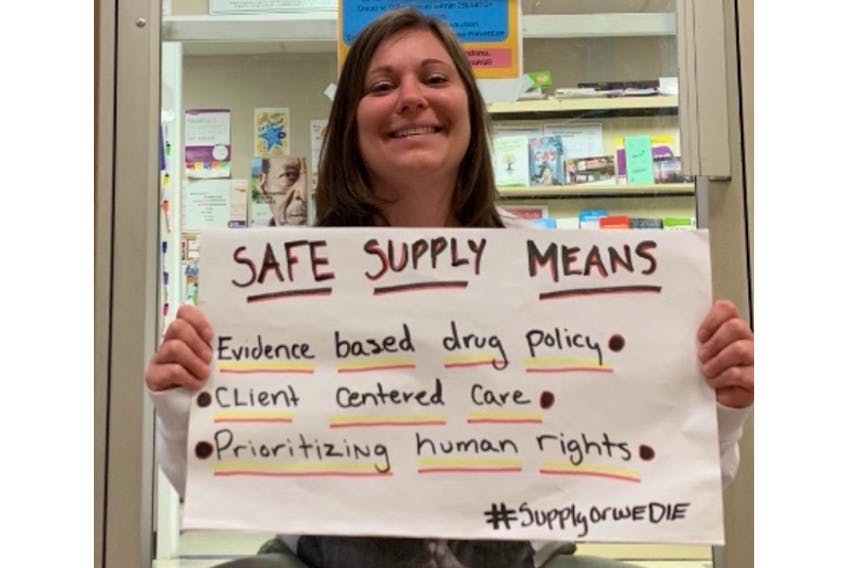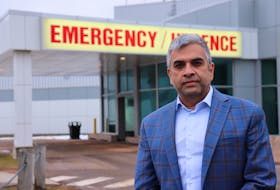CHARLOTTETOWN, P.E.I. — A harm reduction advocate wants to see a government-regulated safe supply program for individuals who depend upon illicit drugs.
Angele DesRoches, who co-ordinates the Peer Engagement and Empowerment Project with PEERS Alliance, says she is concerned that coronavirus-related border restrictions in New Brunswick or P.E.I. may be contributing to a “toxic supply” in the market for illicit drugs.
In early May, chief public health officer Dr. Heather Morrison warned that three recent accidental overdoses were linked to fentanyl, a highly potent prescription opioid used for pain relief. One of the individuals who overdosed died as a result.
On Tuesday, Morrison provided an update, saying there have been five overdoses related to fentanyl since May 5.
Fentanyl is widely credited with contributing to Canada’s high opioid-related death toll in recent years.

The initial warning from Morrison has since prompted calls for increased law enforcement measures from provincial and municipal politicians. Some Charlottetown city councillors renewed calls to give police power to seize property of drug houses. Montague MLA Cory Deagle pressed his counterpart, Justice and Public Safety Minister Bloyce Thompson, to create a provincewide RCMP drug enforcement unit.
But DesRoches said efforts to curb the supply of illicit drugs may be resulting in an increasingly dangerous supply for those who continue to have a dependency.
"There's some good research happening where we can at least look at drug testing information to say that supplies are becoming more and more contaminated and more and more toxic. So, what are we going to do about that?" DesRoches said in an interview.
As the supply dwindles, sellers tend to cut drugs like heroin, opioids or non-opioids like cocaine, with other agents to increase potency. As a result, individuals who use drugs do not know what they are consuming.
"One of the solutions to a toxic supply is to provide consumers with a pharmaceutical grade of the substance that they're trying to purchase off the street," DesRoches said.
By the numbers
Fentanyl in P.E.I.:
- Five overdoses related to fentynal since May 5.
- Four of five people reported heroin use.
- Three of five reported cocaine use.
- Two people who overdosed were male, three were female.
- Three cases involved people in their 30s. Two cases were in their 20s.
British Columbia, the region hardest hit by the opioid crisis, introduced a safe supply program in late March, allowing individuals at risk of an overdose to access prescribed, take-home alternatives to street drugs. However, some have said the program has gotten off to a rocky start, due in part to a reluctance of physicians to prescribe opioid alternatives like Dilaudid.
Elsewhere, over 100 organizations have signed onto a letter urging the Ontario government to adopt an emergency safe supply program. The letter argues that people who use drugs cannot practise physical distancing without support from health-care providers.
In P.E.I., there is no organized community effort pushing for a safe supply. DesRoches said she has not yet had in-depth conversations with Health P.E.I. about the idea.
Still, the presence of fentanyl has had a larger death toll locally than COVID-19. While no individuals have been hospitalized due to the pandemic, several have had accidental opioid overdoses this year.
Since 2016, 23 people have died due to accidental overdoses, at least three of which involved fentanyl.
Other than a widely well-regarded needle exchange program, DesRoches said P.E.I. has few health services focused upon individuals who are unwilling or unable to discontinue use of illicit drugs. Most existing programs are focused on detox or abstinence.
"It's really hard to have conversations with folks who are engaged in substance use about services and supports available through the health system when folks do not feel like their experiences and needs are being reflected," DesRoches said.









